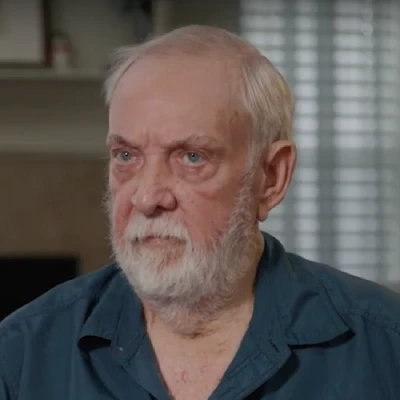Home › Mesothelioma › Treatment
Mesothelioma Treatment
If you or a loved one has been diagnosed with mesothelioma in Louisiana, you may be wondering about the treatment options. Four types of standard treatment are used for mesothelioma patients—surgery, radiation therapy, chemotherapy, and immunotherapy. Patients typically receive more than one type of treatment at once, depending on the stage of their cancer. Meanwhile, new treatments are currently undergoing clinical trials.
Last Updated:
- May 16, 2025
How Is Mesothelioma Treated?
There are various treatment options for patients with mesothelioma, and a combination of different therapies is often used depending on a patient’s circumstances. These treatments aim to reduce the size and growth rate of cancer cells. The standard treatments used for patients with mesothelioma are:
- Surgery
- Radiation therapy
- Chemotherapy
- Immunotherapy
Surgery
Complete surgical removal of the mesothelioma tumor is always preferred. However, it is only possible for a small percentage of patients with early-stage disease since most patients are diagnosed with advanced disease. Some of the different types of surgical procedures used for mesothelioma include the following:
- Pleurectomy and decortication: Surgery to remove part of the covering of the lungs and lining of the chest and part of the outside surface of the lungs.
- Extrapleural pneumonectomy: Surgery to remove one whole lung and part of the lining of the chest, the diaphragm, and the lining of the sac around the heart.
- Talc Pleurodesis: A surgical procedure that uses surgical talc to make a scar in the space between the layers of the pleura. Fluid is first drained from the space using a catheter or chest tube, and the talc is instilled into the space. The scarring stops the build-up of fluid in the pleural cavity.
Experience with Surgery
"He went to the surgery room three times."
First, they tried to do a laparoscopy, but that didn’t work. Then, they went through his groin, but that didn’t work either. The last surgical procedure, they cut him in his abdomen and found fluid on his left side. After they drained the fluid off his left side, they were able to repair his small intestines without him having to come home with a colostomy.
Radiation Therapy
Radiation therapy is a cancer treatment that uses high-energy X-rays or other types of radiation to kill cancer cells or keep them from growing. The way the radiation therapy is given depends on the type and stage of the cancer being treated.
Unlike most tumors, which grow as a sphere or ball of tumor cells, mesothelioma typically develops into a sheet of tumor cells blanketing the lung or abdomen. This characteristic makes it difficult to treat mesothelioma with radiation therapy, which works best when it is targeted to a defined area.
With mesothelioma, the challenge is to deliver enough radioactivity to the sheet of tumors to destroy it without damaging underlying organs. For this reason, radiation therapy is generally used to treat localized patches of tumor recurrence or small areas of tumor left behind after surgery. There is no evidence to suggest that radiation therapy alone improves survival in mesothelioma patients, but it does alleviate pain for about half of the patients receiving it.
Chemotherapy
Chemotherapy is a cancer treatment that uses drugs to stop the growth of cancer cells, either by killing the cells or stopping them from dividing. When chemotherapy is taken by mouth or injected into a vein or muscle, the drugs enter the bloodstream and can reach cells throughout the body.
The way chemotherapy is given depends on the type and stage of the cancer. Early chemotherapy for patients diagnosed with mesothelioma might be more effective than chemotherapy that is delayed until disease progression. Since a cure is impossible in mesothelioma patients at this time, the goals of current chemotherapy regimens are to prolong their survival and improve their quality of life by relieving some of their disease-related symptoms. Ideally, a chemotherapy regimen will be able to achieve both goals simultaneously.
Experience with Chemotherapy
"They just put me on another chemo pill."
I tried two separate chemo pills and those were rough. I probably could only do 20 days of the first chemo pill, and then I was bedridden. For the second chemo pill, they lowered the dose and swapped the med. I did 36 days of that one. I was doing good on this last one, but they swapped it because my blood and all my levels weren’t doing good.
Immunotherapy
Immunotherapy is a newly emerging treatment option for mesothelioma. These treatments aim to use a patient’s own immune system to fight their mesothelioma. Immunotherapy specifically targets mesothelioma cells and minimizes damage to healthy cells, meaning patients often experience fewer side effects. Patients not in the best overall health may receive this treatment to improve their survival time with minimal adverse effects.
Immunotherapy aims to boost the patient’s immune system so it can target mesothelioma cells more effectively. There are two approaches to immunotherapy—active and passive. Active immunotherapy stimulates the immune system to attack mesothelioma cells using antigens injected into the body, and passive immunotherapy uses lab-created compounds to attack cancer cells and passively affect the immune system’s strength.
Experience with Immunotherapy
"I had treatments of immunotherapy."
I was diagnosed with mesothelioma in 2021. For the first two years, I did immunotherapy. And then the doctor finally told me, she says, “It’s not working no more. You’re going to have to go on chemo.”
Treatment Questions
to Ask Your Doctor About Mesothelioma
What treatment options do I have?
What treatment do you recommend and why?
What risks or side effects are there to the treatments you suggest?
What are the chances my cancer will come back with these treatment plans?
What should I do to be ready for treatment?
Treatment Options for Localized Mesothelioma - Stage I
Patients with stage 1 mesothelioma typically have a significantly better prognosis than those with more advanced stages. There are two types of stage 1 mesothelioma: solidarity mesothelioma, where the localized cancer is only in one part of the chest lining, and intracavitary mesothelioma, where the localized cancer develops in more than one place in the chest.
The standard treatment for solitary mesothelioma is surgery to remove the part of the chest lining with the cancer and some tissue around it. For intracavitary mesothelioma, the standard treatment options are surgery, such as pleurectomy and decortication, with or without postoperative radiation therapy, extrapleural pneumonectomy, and palliative radiation therapy.
Treatment Options for Advanced Mesothelioma - Stages II, III, and IV
Generally, treatment for advanced mesothelioma is not curative. Although some patients may experience an increase in lifespan, it’s unclear whether treatment alters the overall survival of mesothelioma patients in later stages. Treatment of advanced malignant mesothelioma may include the following:
- Symptomatic treatment, such as drainage of effusions, chest tube, pleurodesis, or thoracoscopic pleurodesis
- Palliative surgical resection in selected patients
- Palliative radiation therapy
- Single-agent chemotherapy
- Combination chemotherapy
- Multimodality clinical trials
- Intracavitary therapy
Clinical Trials
Clinical trials are research studies that test how well new medical approaches work in patients. Some patients may decide to take part in a clinical trial before, during, or after beginning their cancer treatment.
Because mesothelioma is so rare, few large clinical trials have been conducted to guide treatment recommendations. This limited amount of information has created some uncertainty regarding the best approach to treating mesothelioma. However, several investigational agents and therapies are continually being tested in smaller clinical trials. This research has provided valuable information regarding managing mesothelioma, resulting in an improved understanding of current treatment options. Moreover, the ongoing evaluation of so many investigational therapies has provided a ray of hope for researchers and patients.
Factors That Affect Treatment Options
The specific treatment options chosen for a mesothelioma patient depend on factors related to both the patient, such as age and overall health, as well as the location and stage of the disease. Other treatment-determining factors can include:
- The stage of the cancer
- The size of the tumor
- Whether the tumor can be removed completely by surgery
- The amount of fluid in the chest or abdomen
- The patient’s age and general health, including lung and heart health
- The type of mesothelioma cancer cells and how they look under a microscope
- Whether the cancer has just been diagnosed or has recurred
Traveling for Mesothelioma Treatment
At some point during treatment, patients may need to travel across the state or country for more specialized care. Traveling to a comprehensive center for treatment gives patients access to mesothelioma experts and a team of health care professionals to assist them and their families during all phases of treatment.
Besides medical specialists, a treatment team for mesothelioma patients may include the following:
- Oncology nurses
- Oncology and clinical social workers
- Psychiatrists and psychologists
- Dietitians
Traveling for medical treatment and consultations can be daunting, but large cancer centers are equipped to help with planning, lodging, and other services patients need while undergoing treatment. Medical facilities accustomed to patients traveling for care often negotiate discounts with airlines, hotels, and ground transportation for established patients and their caregivers.
Louisiana Treatment Centers
Several mesothelioma treatment centers across Louisiana are dedicated to treating and supporting cancer patients, including the following:
Feist-Weiller Cancer Center
1501 Kings Hwy
P.O Box 33932
Shreveport, Louisiana 71130
Mary Bird Perkins Cancer Center
4950 Essen Lane
Baton Rouge, Louisiana 70809
Our Lady of the Lake Cancer Center
5000 Hennessy Boulevard
Baton Rouge, Louisiana 70808-4398
Ochsner Health - The Gayle and Tom Benson Cancer Center
1515 River Road
Jefferson, Louisiana 70121
Seeking a Second Opinion
After receiving a mesothelioma diagnosis from one doctor, it’s common for patients to seek a second opinion. In particular, patients may want a second opinion on a diagnosis under the following circumstances:
- Patients have concerns about recommended treatments
- The pathologist is having difficulty making a diagnosis
- The patient’s doctor is unfamiliar with mesothelioma
- The doctor underestimates the seriousness of the disease
- The patient’s medical insurance plan requires it.
Contact the Louisiana Mesothelioma Advocates

If you or a loved one have been diagnosed with mesothelioma after being exposed to asbestos in Louisiana, contact Louisiana Mesothelioma Advocates as soon as possible. We will connect you with our sponsor, Baron & Budd, P.C., who can ensure you have the best possible guidance regarding mesothelioma doctors in your area. Our sponsor has developed an excellent working relationship with many local treating pulmonologists and oncologists in the state.

Content Reviewed by
Todd Kale
Todd Kale meets with mesothelioma patients and their families across Louisiana to investigate their asbestos exposure, providing compassionate support and guidance during a difficult time.



